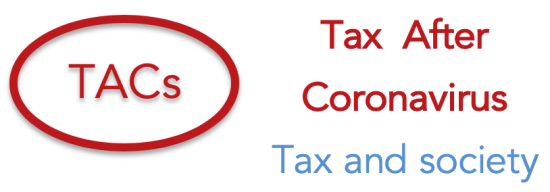 As was discussed in the introduction to this section on Tax and Society within the Tax After Coronavirus (TACs) project, tax has at least six roles to play in any society. Encouraging democratic participation is one of the least known of these riles. This section explores that issue.
As was discussed in the introduction to this section on Tax and Society within the Tax After Coronavirus (TACs) project, tax has at least six roles to play in any society. Encouraging democratic participation is one of the least known of these riles. This section explores that issue.
Raising democratic representation
It is not uncommon for people to talk about a social contract between governments and taxpayers, and most would recognise that a relationship of this form does exist. That is particularly true in the case of those countries that have democratic elections. There is some evidence that those people who know that they pay taxes are more inclined to vote in such elections. This appears to be because they want to hold a government to account with regard to taxation, and so with regard to other matters. The evidence that exists on this issue suggests that awareness of tax paid is important. In this context, the payment of taxes on income does appear to have the most significant influence. In that case governments that wish to encourage democratic engagement might also need to encourage a broadly-based income tax within their jurisdiction.
This idea has been most promoted by Alex Cobham, now chief executive of the Tax Justice Network. He has noted:
The main evidence on the importance of tax for effective government i.e. that the higher the share of government expenditure that comes from taxation the better the prospects over time for good governance, with some evidence that this is stronger for direct taxation is to be found in the Government Revenue Dataset which replicates/extends a key finding from Michael Ross.
Key references in support are probably Will Prichard and the classic Brautigam, Fjeldstad and Moore.
Thanks for reading this post.
You can share this post on social media of your choice by clicking these icons:
You can subscribe to this blog's daily email here.
And if you would like to support this blog you can, here:


